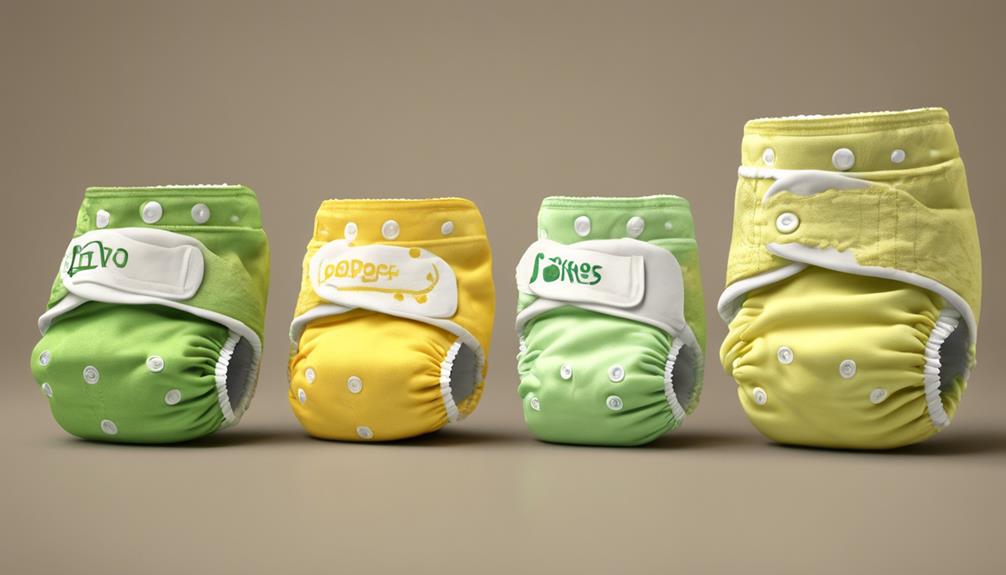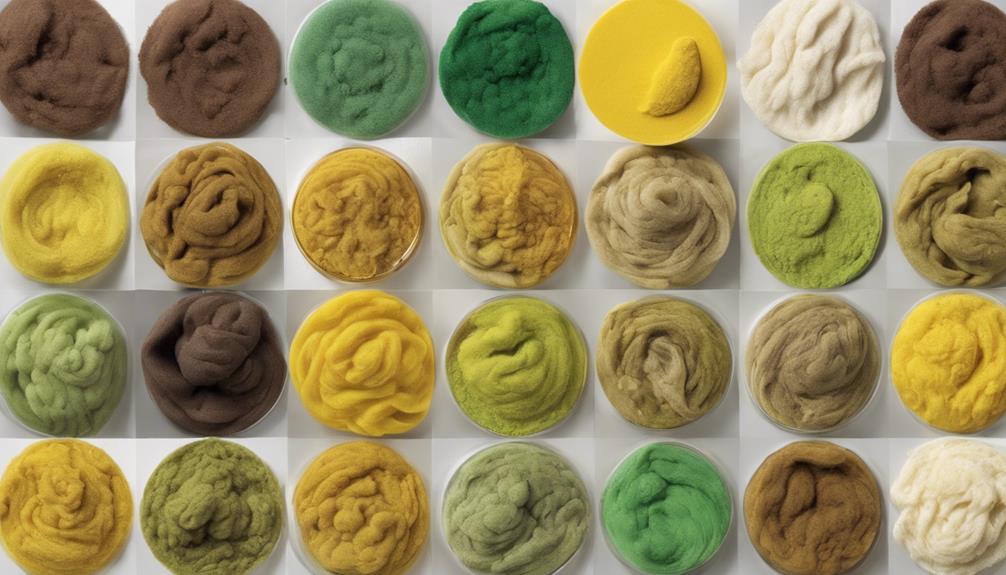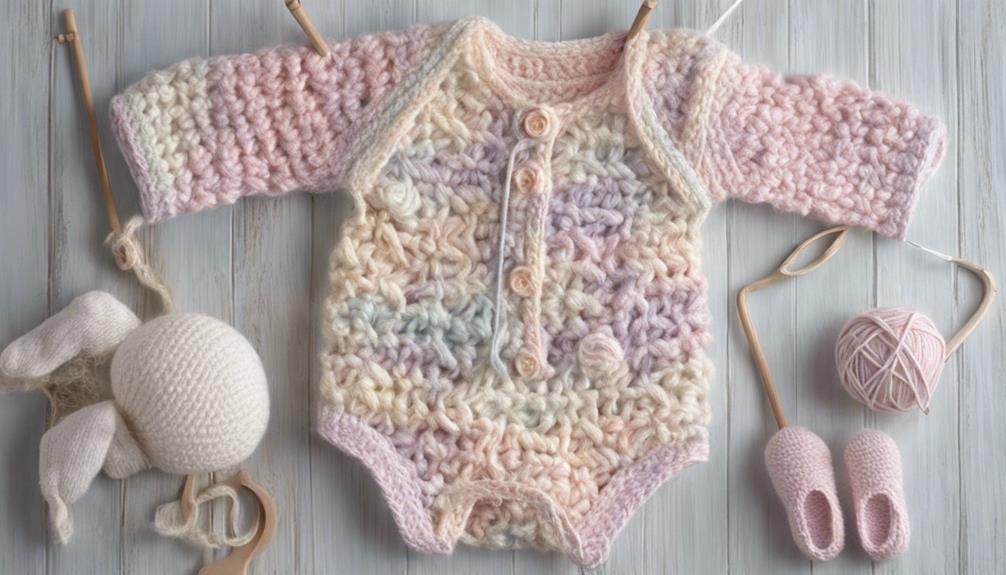As new parents, you may not realize that keeping track of your newborn's poop can provide valuable insights into their health. Wondering how many times a day your baby should be pooping? Well, the frequency of newborn poop can be quite telling, but there's more to it than just the number of diapers you change.
Understanding what to expect per day regarding color, consistency, and texture of your baby's poop can help you gauge their well-being. Stay tuned to learn more about the nuances of newborn poop and what it signifies for your little one's health.
Key Takeaways
- Breastfed newborns can poop up to 8 times a day, while formula-fed infants typically have 1-4 bowel movements daily.
- Newborn poop transitions from meconium to seedy stools, offering insights into digestive system maturation.
- Monitoring poop color, consistency, and frequency aids in identifying digestive health issues early on.
- Changes in poop texture, color, or frequency should prompt consultation with a healthcare provider for proper assessment.
Frequency of Newborn Poop
Breastfed newborns typically poop several times a day, with some having up to 8 bowel movements in a 24-hour period. This frequent pooping is a positive sign that they're receiving enough milk and their digestive system is functioning well.
On the other hand, formula-fed infants tend to have fewer bowel movements, averaging around 1-4 poops per day. Please be aware that during the first few days after birth, both breastfed and formula-fed babies will pass meconium, which is a sticky, greenish-black substance. This is normal and shows that their digestive system is working to clear out waste products.
As newborns grow, changes in poop frequency can occur as their digestive system matures and adjusts to their feeding patterns. Parents can track the number of dirty diapers to monitor their baby's feeding and overall health.
Keeping an eye on your baby's bowel movements is a simple yet effective way to make sure they're thriving and getting the nutrition they need.
Consistency of Newborn Poop
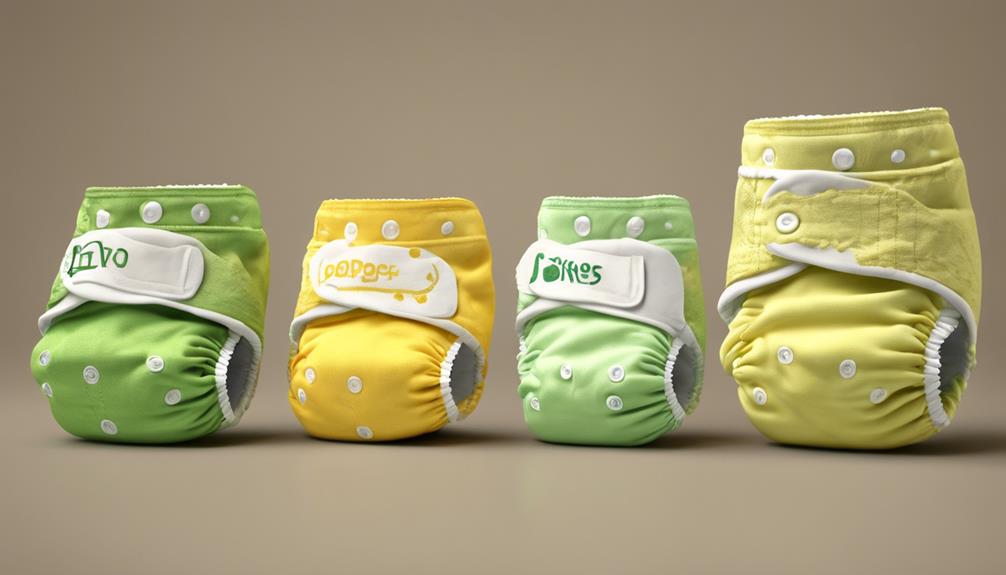
During the initial days after birth, newborn poop typically changes from thick, sticky meconium to softer, seedy, mustard-colored stools. In breastfed babies, this shift is often smooth, with the poop having a seedy texture and a mustard-like color.
Formula-fed newborns, on the other hand, may have stools that are firmer and more paste-like compared to breastfed infants. It's essential for parents to observe their baby's poop consistency as changes can indicate potential issues with digestive health. Any significant deviations from the norm should prompt a consultation with a pediatrician for further evaluation and guidance.
The consistency of a baby's poop can be influenced by various factors, including the type of feeding and the baby's overall health. Understanding what's normal for your newborn can help you stay informed about their well-being and address any concerns promptly.
Color of Newborn Poop
When considering newborn poop, an important aspect to observe is the color variations that can indicate different aspects of the baby's health and diet. Meconium, the initial bowel movement, typically presents as dark greenish-black in color. Following this, interim stools may appear greenish-yellow as the baby's system clears out meconium.
Breastfed baby poop often takes on a mustard-yellow hue due to the presence of bilirubin, while formula-fed baby poop can vary from yellow to tan. It's vital to observe that changes in poop color can signify dietary adjustments or even potential health issues. These shifts in color serve as important indicators for parents and caregivers to monitor the baby's well-being closely.
Understanding the nuances of newborn poop color provides valuable insights into the baby's digestive system, helping recognize any deviations that may require attention.
Texture of Newborn Poop
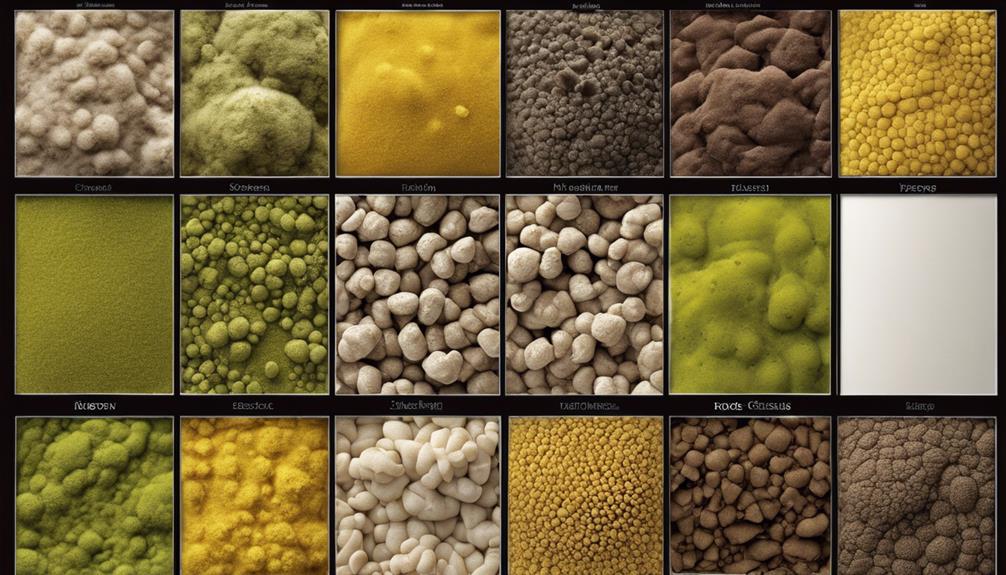
Newborn poop undergoes a significant alteration from the initial meconium stage to shifting stools, providing key insights into the baby's digestive health. The shift from meconium to transitional stools marks an important change in a newborn's poop texture.
For breastfed babies, poop tends to be seedy, with a light mustard-colored hue, reflecting the makeup of breast milk. On the other hand, formula-fed babies may have stools that are yellow or tan and typically firmer in consistency. Understanding these differences in texture is important for parents as it offers valuable clues about their baby's digestive well-being.
Monitoring the texture of newborn poop allows caregivers to track changes, ensure proper nutrition, and promptly address any concerns related to digestive health. By paying attention to these variations in stool texture, parents can play a vital role in supporting their baby's overall well-being.
What Is Normal Poop for Newborns
Moving from the texture of newborn poop, understanding what constitutes normal bowel movements for infants is important for monitoring their digestive health and overall well-being. When it comes to newborn poop patterns, there are some key differences between breastfed and formula-fed babies:
- Breastfed newborns: typically have at least one bowel movement per day in the first week of life, showing that their digestive system is functioning well.
- Formula-fed newborns: may have varying bowel movement frequencies, ranging from multiple times a day to once every few days, which is also considered normal.
The shift from meconium to regular stool within the initial days of life is a positive sign of digestive maturation. Keeping an eye on the frequency and consistency of bowel movements is essential for gauging a baby's digestive health and general well-being. Any deviations from the norm, such as persistent constipation or unusual colors in stool, should prompt a discussion with a healthcare provider to make sure the infant's health is properly addressed.
Frequently Asked Questions
How Many Poop per Day Is Normal for Newborn?
We typically see newborns having around 1-2 poops per day. It's reassuring to know this is a common range. If you notice any concerns or changes, reach out to your pediatrician for guidance and support.
How Much Do Newborns Poop First Day?
On the first day, newborns typically pass meconium, their initial stool. It's a reassuring sign that their digestive system is working well. If they don't poop within the first day, it's important to consult a healthcare provider for guidance.
Is It Normal for a 5 Day Old to Have Meconium Poop?
Yes, it's normal for a 5-day-old to have meconium poop. This dark, sticky stool is typically passed in the first few days after birth. It shows healthy bowel function. Meconium may continue for up to a week.
What if My Newborn Hasn't Pooped in 24 Hours?
If our newborn hasn't pooped in 24 hours, it might signal an issue like constipation or feeding concerns. Seeking guidance from the pediatrician is important for proper evaluation and care. We should act promptly for our baby's well-being.
Conclusion
To sum up, monitoring your newborn's poop is essential for ensuring their health and well-being. On average, a breastfed baby may poop up to 5 times a day, while a formula-fed baby may poop less frequently. Remember that changes in color, consistency, or lack of bowel movements for over a week should be discussed with your pediatrician. By staying informed and attentive to your baby's poop patterns, you can help identify any potential issues early on.
Did you know that by the age of 3, a child will have gone through approximately 4,000 diaper changes?
